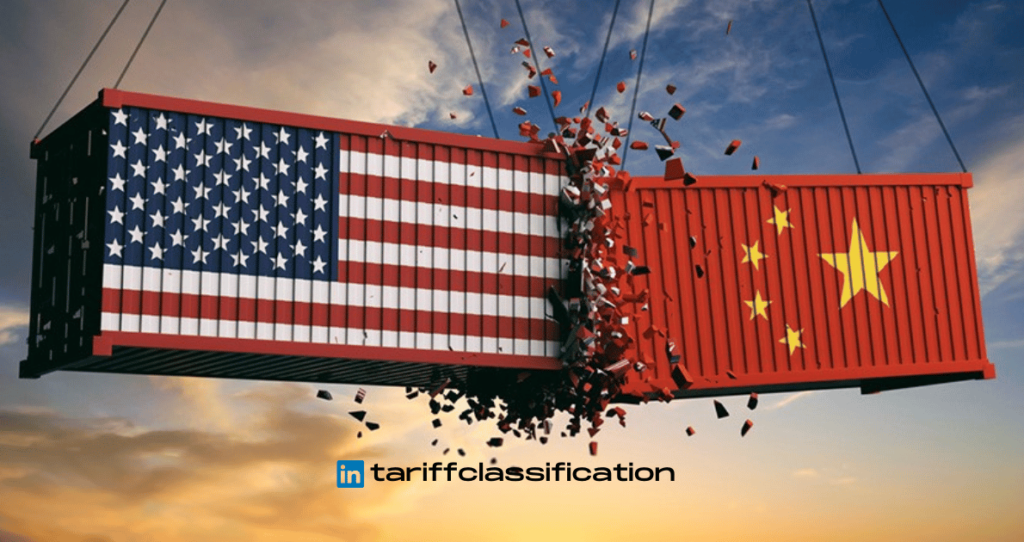The China–United States trade war is one of the most significant economic conflicts of the 21st century. It all started in 2018, when U.S. President Donald Trump imposed tariffs on Chinese imports, sparking a tit-for-tat trade war between the world’s two largest economies. The dispute has escalated over the years, resulting in an ever-growing list of tariffs and retaliatory measures from both sides. This has had a major impact on global markets, with the potential to cause considerable economic disruption for both the U.S. and China. In this blog, we’ll take a look at the history of the trade war, its impact on the global economy, and the potential implications for the future.
Background of Trade Relationship
Since the 1980s, Donald Trump has been a vocal proponent of tariffs as a way to eliminate the U.S. trade deficit and stimulate domestic manufacturing. During his presidential campaign, Trump often cited the nation’s “ripped off” status as justification for tariffs. Unfortunately, most economists disagree with Trump’s approach and have concluded that his tariffs will do more harm than good to the American economy. Instead, economists generally advocate alternate strategies for addressing the trade deficit with China, such as enforcing existing trade rules and strengthening U.S. industry competitiveness.
Response of China and Counter Allegations
The Chinese government has argued that the US government’s real goal is to stifle China’s growth, and that the trade war has had a negative effect on the world. The Chinese government has denied any forced transfer of IP and has taken a number of steps to protect foreign intellectual property and trade secrets. The Chinese government has also made plans to lift restrictions on foreign investment in the automotive industry in 2022. Despite these efforts, US officials have remained critical, with Lester Ross criticizing the foreign investment bill, claiming it was rushed and had too much power to retaliate against countries that impose restrictions on Chinese companies. Ultimately, this has become an ongoing struggle between the two countries with neither side seeming to be willing to back down.
New Export Limits and US Investment Bans for Chinese Companies
The Biden administration has so far not withdrawn the Trump-era tariffs on Chinese imports, and has instead introduced additional export limits and US investment bans for Chinese companies to protect US economic and military interests. This October, the US Department of Commerce increased sanctions against Chinese companies, including Huawei, Nvidia, YMTC, and ChangXin Memory Technologies. Additionally, DJI and BGI Genomics also faced new restrictions. South Korean telecom companies who trade with the PRC were partially excluded from the new sanctions. These measures demonstrate the Biden administration’s commitment to safeguarding US interests with regards to Chinese imports, and will likely remain in place for the foreseeable future.
Economic Fallout from the US-China Trade War
The ongoing trade war between the United States and China has had far-reaching economic implications for both countries and beyond. The United Nations reported in November 2019 that both countries are economically hurting as a result of the tariffs imposed by the United States. The cost of manufacturing has increased for US companies, leading to higher prices for consumers, and farmers have experienced financial hardships. China has seen a decrease in economic and industrial output growth, and some American companies have shifted their supply chains to other countries in Asia. The trade war has also caused economic damage in other countries, while a few have benefited from increased production. Furthermore, stock markets around the world have experienced instability. Governments have taken steps to address the damage caused by the trade war, but the US has imposed approximately US$350 billion in tariffs on Chinese imports, while China has imposed US$100 billion on US exports.
Impact of the Trade War on Global Economic Growth
Overall, the trade war between the U.S. and China has had a negative effect on global economic growth and investment, though some countries have benefited from increased exports. Economic stimulus initiatives by some governments have been implemented in an attempt to offset some of the economic damage, though economists have cautioned that these initiatives may not be effective in the long term. The trade war has caused some companies to go bankrupt and has led to the strengthening of certain currencies. It remains to be seen how the global economy will be affected in the long run.
Conclusion
The success of the trade war may be murky, but there are still measures the U.S. can take to limit China’s economy and the CCP’s influence. One example is the action taken against the telecommunications company Huawei, which has close ties to the Party and has been accused of stealing intellectual property and spying on Western nations. In response, the U.S. restricted Huawei’s access to the U.S. market in 2019, causing a decline in revenue for the company in every country except for China. The U.S. could also take a stronger stand against China’s use of protectionist subsidies and unfair joint ventures policies, but it needs to develop a unified, comprehensive approach in order to do so.
